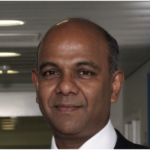 Multidisciplinary team (MDT) working is one of the cornerstones of our cancer services. MDT meetings are vital for exemplary patient care but it is becoming increasingly clear that they need to be refreshed.
Multidisciplinary team (MDT) working is one of the cornerstones of our cancer services. MDT meetings are vital for exemplary patient care but it is becoming increasingly clear that they need to be refreshed.
Despite the rising incidence of cancer, an ageing population and huge improvements to cancer services and treatment regimens, the format of MDT meetings has not changed since their introduction over 20 years ago. We now see more patients, with more co-morbidities, and far more treatment options to discuss.
The evidence reflects this: each year between 2011/12 and 2014/15 saw the number of discussions conducted at MDT meetings in England increase by 20%, while workforce numbers have barely changed.
This growing disparity between capacity and demand has meant that health care professionals spend more time preparing for and attending MDT meetings, while the meetings themselves become increasingly rushed. In many cases, meetings involve a rapid run-through of cases without time for reflection, evaluation, or any meaningful multidisciplinary input.
For this reason, a Cancer Research UK report on how to improve the effectiveness of MDT meetings across the UK, published today, is highly important and timely.
Observing MDT meetings, the report reveals some stark results: on average, each patient discussion lasted just two minutes and involved only three members of the MDT.
In my experience, healthcare professionals are under increasing pressure to rush through discussions about all patients without allocating sufficient time to discuss the complexity of some patients’ care plan.
MDT meetings should facilitate meaningful multidisciplinary input into patient care, but these findings show that in reality this does not happen. Just 14% of discussions included information about the patient that did not relate specifically to their cancer diagnosis—such as their preferences, psychosocial status, or any known co-morbidities.
There seems little point in healthcare professionals attending a MDT meeting if they are unable to contribute to the patient’s recommended treatment plan.
It is clear to me that despite these challenges, MDT working is still the gold standard. This is not a reason to restrict MDT working, but to review and optimise how meetings might best work. In this challenging landscape, scarce, valuable resources must be used in a way that brings maximum benefit to our patients.
This is not a radical idea: many MDTs across the UK are already working on improvement. The importance of MDT working was referenced in all three cancer strategies, with the cancer strategy for England including recommendations to streamline discussions. It is now time for national action.
Cancer Research UK has set out recommendations for streamlining and improving MDT meetings and MDT working, to make best use of resources, improve the quality of discussions and allow more time for discussion of patients with the most complex conditions.
Several of these recommendations require national action to address these issues. For example, currently, MDT members in England must attend 66% of MDTs. This quickly becomes difficult for those working across multiple MDTs—particularly diagnosticians. Instead, ensuring that there is a quorum at the meeting would retain multidisciplinarity without disproportionately insisting on the attendance of those whose time could be better spent in direct patient care.
We must also consider streamlining the number of patients discussed by the full MDT. Pathways are much further developed than they were when MDTs were first introduced: in many patients, a protocol-driven decision-making approach may be undertaken by a smaller multidisciplinary group rather than the full MDT.
It is also essential that all relevant patient information is available for the MDT discussion and to support MDTs other key roles in data validation, education and critically, patient entry into clinical trials.
I hope that this report begins a conversation within MDTs across the UK and, most importantly, that work begins on a national level to support these changes. As a central part of our cancer services, it is vital that MDTs are working as well as they can on behalf of our patients now and in the future.
Arnie Purushotham is professor of Breast Cancer at King’s College London and Consultant Surgeon at Guy’s and St Thomas NHS Foundation Trust. He is the Director of King’s Health Partners Comprehensive Cancer Centre and Senior Clinical Advisor to Cancer Research UK.
Competing interests: Arnie Purushotham was given sight of a draft version of the report for comment in his capacity as Senior Clinical Adviser for Cancer Research UK.